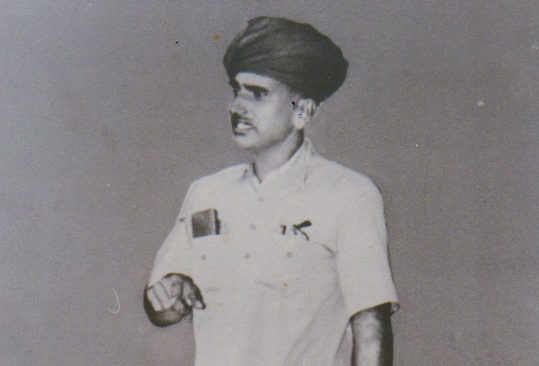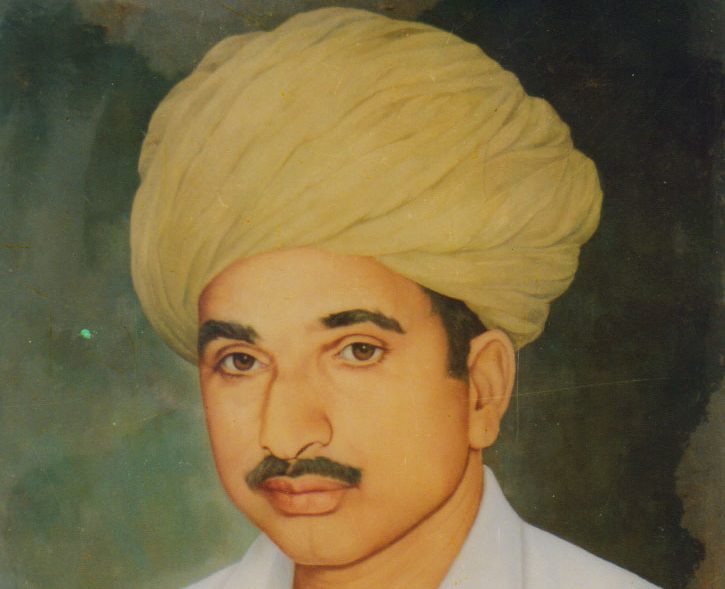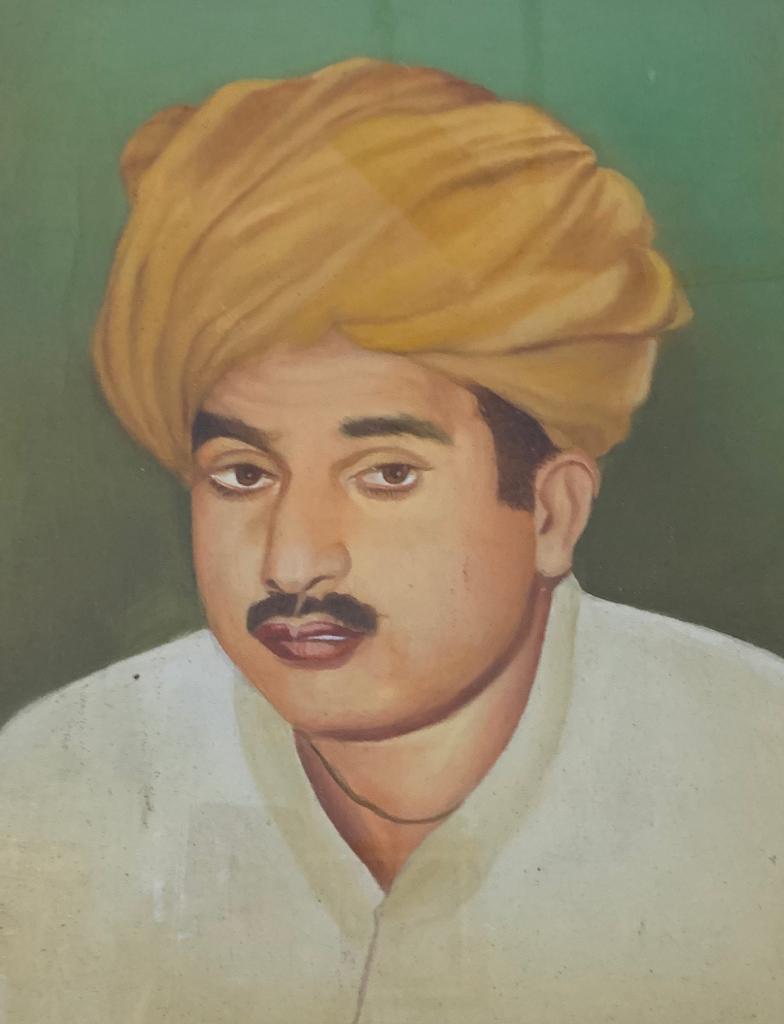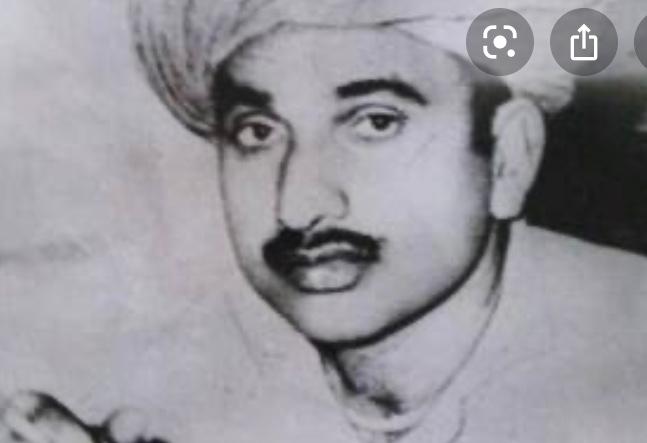Shri Ayuvan Singh Hudeel - Second 'Sanghpramukh'
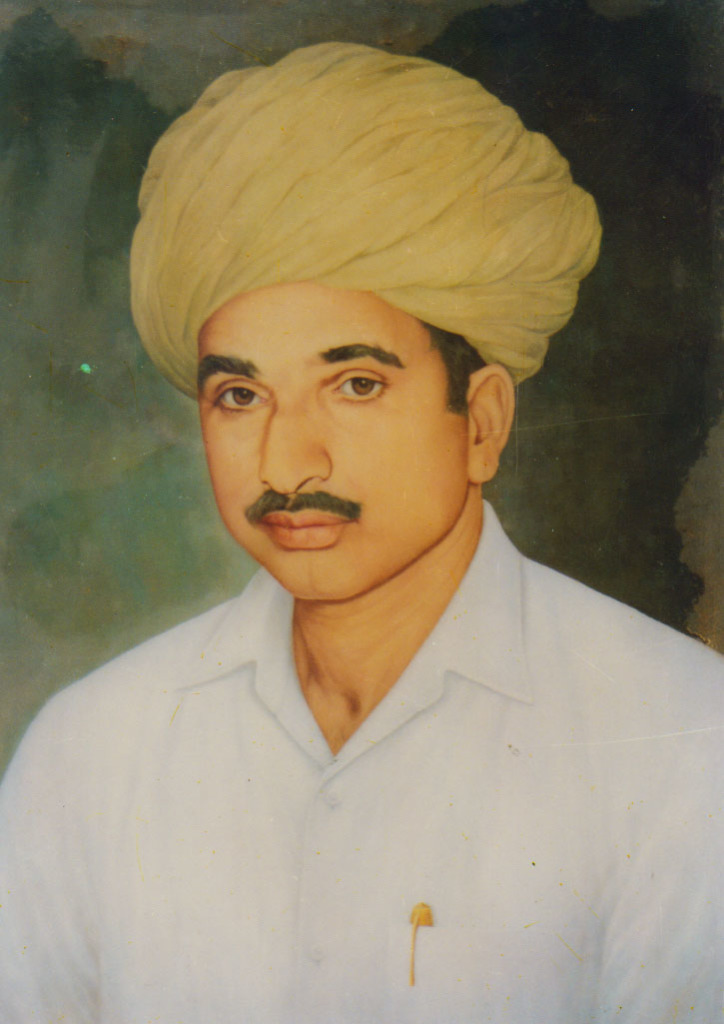
Pujya Ayuvan Singh Hudeel, popularly known as ‘Matsab’ among his companions, was the second Sanghpramukh of ShriKYS. He was born on 17 October, 1920 in an ordinary Rajput family in the Hudeel village situated on the border of Shekhawati in Nagaur district. His father’s name was Pehap Singh Ji and Smt. Bakhtawar Kanwar was his mother. He was adopted by Sujan Singh Ji. Due to family responsibilities, he could not continue regular studies after 8th and started the job of drill master in Merta. At that time, he read the article “Rajputon Se Dvesh Kyon?” (Why malice towards Rajputs?) written by pujya Tan Singh Ji in the ‘Praja Sewak’ news paper and influenced by his thoughts he wrote a letter to Tan Singh Ji and encouraged and appreciated him. Pujya Tan Singh Ji was studying in Chaupasani School at that time. Ayuvan Singh Ji got transferred to Barmer and they both got to know each other more closely through the letters written to each other. In 1944, while studying in Pilani, pujya Tan Singh Ji founded the erstwhile Shri Kshatriya Yuvak Sangh and informed ‘Matsab’ of this development, in response to that he wrote a letter on 23rd October, 1944 and expressed his eagerness to work with the organisation. Pujya Tan Singh Ji convened the first session of his organisation on 05-06 May, 1945 in the chairmanship of Ayuvan Singh Ji. After the foundation of ShriKYS in its present form in 1946, ‘Matsab’ attended his first camp on 4-7 September, 1947 (which was the fourth camp of ShriKYS) and got immensely influenced. After the OTC (Organizers Training Camp) Kuchaman in 1948 (which was the seventh camp of ShriKYS), he became dedicatedly active in the Sangh. Meanwhile he completed his Masters in Hindi and LLB while doing the job. With the great support of pujya Tan Singh Ji and his companions, Ayuvan Singh Ji was elected General Secretary of ‘Marwar Rajput Sabha’. ‘Matsab’ left his job and started working as a full time social and political activist. In 1949, the Chaupasani Movement denoted the capability of leadership and foresight of the duo (Tan Singh Ji and Ayuvan Singh Ji) in the society. In the first general elections of 1952, pujya ‘Matsaab’ emerged as the political strategist of the then Maharaja of Jodhpur and he persuaded Tan Singh Ji to contest from barmer. In 1954, at the Jeen Mata camp, pujya Tan Singh Ji got Ayuvan Singh Ji elected as the second Sanghpramukh withdrawing himself from the candidature. At the same time, under the guise of the Land Acquisition Act of the Government of Rajasthan, lands of the Rajputs, which was the principal source of livelihood for them, were taken away. Pujya ‘Matsaab’ decided to protest against this injustice during the Kishangarh camp of the Sangh in 1955 and Bhuswami movement were conducted twice under his leadership. Finally, on the initiative of the Nehru ji (the first Prime Minister of India) the agreement was reached and the compensation amount for the seized land was increased manifold. During the Bhuswami movement, Ayuvan Singh Ji united the society towards the cause of the movement and proved himself as a skilled organizer. His indomitable courage, enthusiasm, valor, endurance and perseverance despite the lack of means rendered him the reputation of a brave fighter. In Haldighati OTC in 1959, he was re-elected as Sanghpramukh but he resigned on 22 September, 1959 due to his elsewhere engagements and commitments and according to the rules framed in presence of Ayuvan Singh Ji in Jaisalmer, pujya Tan Singh Ji was again elected as Sanghpramukh on 6 November, 1959. After resigning, pujya ‘Matsaab’ became active in full-time politics. He worked towards establishing the Swatantra Party as a strong opposition and an alternative to then ruling party in Rajasthan. He himself contested the assembly elections twice but could not succeed. At the same time, he suffered from cancer and in February, 1967 this immensely skilled personality of our community left his mortal body. pujya ‘Matsaab’ was a skilled organizer, politician and strategist along with being a great scholar and author. His book ‘Meri Sadhana’ is still an important part of teachings of ShriKYS. One hundred and eleven passages of that book are the guiding directives for the steps of the gradual progress of a social Sadhak (Seeker). The stories written in his book ‘Mamta and Kartavya’ are the poignant description of the ‘Kshatra-Parampara’ (Kshatriya tradition) which always chooses duty over emotions. His discourse in the form of a book titled as ‘Hamari Etihasik Bhulein’ (Our Historical Mistakes) given in Sundha Mata camp still inspires us to consider history as a teacher. The book ‘Rajput aur Bhavishya’ (Rajputs and future), written for the Rajputs to guide them in the contemporary politics, still attracts politicians. Apart from this, ‘Hathilo Rajasthan’ and ‘ Rajputs and Jagirs’ are also his published books. This political saint, who always prioritised the society over his family, attended 44 camps of ShriKYS in his lifetime. Merta camp (held from 15-21 October, 1961) was his last camp.

